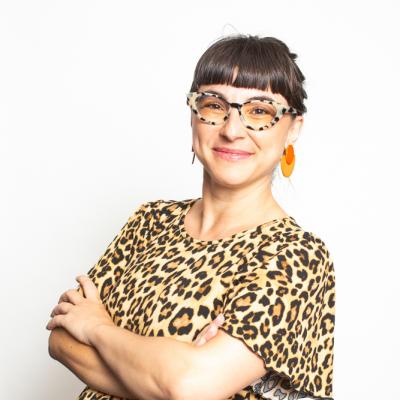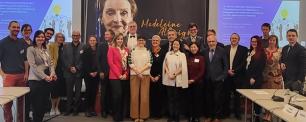CREAF's scientific coordinator, Alícia Pérez-Porro, takes part in the definition of the European framework for science diplomacy
The European Commission is promoting a series of 5 working groups to develop recommendations for the future European framework for science diplomacy, with the participation of Alícia Pérez-Porro, CREAF's scientific coordinator. Specifically, Pérez-Porro is part of the group called 'Strengthening science diplomacy in delegations and embassies and promoting the dissemination of the EU's global science diplomacy', as her experience is directly linked to the link between science and public policy and her work as president of both the association Spanish Scientists in the USA (ECUSA) and the Network of Associations of Spanish Researchers and Scientists Abroad (RAICEX).
The groups work with co-creation methodologies and are made up of professionals from the fields of knowledge of the scientific community, diplomacy and international public management, with the task of jointly drafting recommendations using innovative formats. Alícia Pérez-Porro stresses that "science diplomacy is very necessary at a time when multilateralism still faces many challenges and, at the same time, is the only way to address global cross-border threats such as climate change and biodiversity loss".

“Science diplomacy is very necessary at a time when multilateralism still faces many challenges and, at the same time, it is the only way to face global transboundary threats such as climate change or the loss of biodiversity”.
ALICIA PÉREZ-PORRO, CREAF's scientific coordinator.
The initiative responds to the objectives of the European Commission's recent Global Approach Implementation Report and was launched just after COP28, the international multilateral meeting in Dubai, United Arab Emirates. In total, the European Commission has selected 100 individuals, out of 575 applications of interest, in an initiative led by Maria Cristina Russo, Director of Global Approach and International Cooperation in Research and Innovation of the European Commission.
The 5 working groups that complete the initiative are: WG1: Using science diplomacy strategically to tackle geopolitical challenges in a fragmented, multipolar world. WG2: Making European diplomacy more strategic, effective and resilient through scientific evidence and foresight. WG3: Strengthening science diplomacy in Delegations and Embassies and fostering the EU’s global science diplomacy outreach. WG4: Building capacity for European science diplomacy. WG5: Cross-cutting group on definition, principles and EU added value of European science diplomacy.







